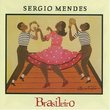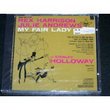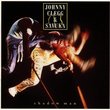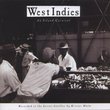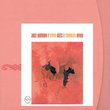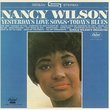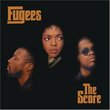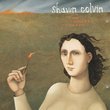| All Artists: Gioachino Rossini, Lamberto Gardelli, Royal Philharmonic Orchestra, Gabriel Bacquier, Montserrat Caballé, Nicolai Gedda, Mady Mesplé, Kolos Kovacs, Gwynne Howell . Ricardo Cassinelli, Charles Burles . Jocelyne Taillon Title: Rossini - Guillaume Tell / Bacquier, Caballé, Gedda, Mesplé, Kovacs, Howell, RPO, Gardelli Members Wishing: 0 Total Copies: 0 Label: EMI Classics Release Date: 10/25/1990 Album Type: Original recording reissued, Box set Genre: Classical Styles: Opera & Classical Vocal, Forms & Genres, Theatrical, Incidental & Program Music Number of Discs: 4 SwapaCD Credits: 4 UPCs: 077776995120, 077776995151 |
Search - Gioachino Rossini, Lamberto Gardelli, Royal Philharmonic Orchestra :: Rossini - Guillaume Tell / Bacquier, Caballé, Gedda, Mesplé, Kovacs, Howell, RPO, Gardelli
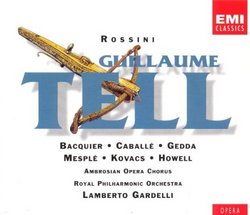 | Gioachino Rossini, Lamberto Gardelli, Royal Philharmonic Orchestra Rossini - Guillaume Tell / Bacquier, Caballé, Gedda, Mesplé, Kovacs, Howell, RPO, Gardelli Genre: Classical
|
Larger Image |
CD DetailsSimilarly Requested CDs
|
CD ReviewsThe very best whether in French or Italian 10/01/2003 (5 out of 5 stars) "This is the very best recording of Tell that exists. There are others of live performances (in French and in Italian, all heavily cut), and a wonderful complete version (minus most of the ballet music) in Italian with Pavarotti. Though the Italian version is very interesting, very exciting, and very thrilling in many ways, it is NOT the opera that Rossini wrote. He wrote French Grand Opera at its grandest. This opera, along with La Juive, Les Huguenots, and Auber's Opera where the heroine is "danced" rather than sung, are considered the chief cornerstones of all French Grand Opera. As exciting as Tell is in Italian, it becomes quite a different work in its original French. A great refinement paints the very vivid score. It is a very long work, and in spite of its length actually holds together quite well. As with all Rossini, there are little touches that simply make a scene, but don't draw any real attention to themselves. The vocal writing is much less florid than it was in his Italian operas, but no less moving. This opera was the opera that changed singing (at least for tenors) forever. It was in this opera that Dupres sang his famous high C from the chest (Nourrot, the creature of the role, sang it in head voice, and that is the only way Rossini liked hearing it; the public, however was hooked on the High C from the chest). We are hearing a wonderful performance in this recording, and it is virtually complete (including the ballet music). Each character is well sung, and for once we can actually understand French when it is sung. There is a difference in this French version and the Italian one with Pavarotti. In this version, Act 3, a duet occurs between Matilde and Arnold. In the Italian it becomes an aria for soprano with a tenor interjecting now and again. In the French it is a real duet, even with the very extended aria sections for the soprano. Caballe sings to perfection in this recording, and in my view, outshines Freni (who sings Matilde in the Italian version) by a long way. However, the opera is judged (and Heaven knows why, for all the main characters are of equal importance, and with music of equal difficulty) not by the lead baritone (singing Tell), but by the tenor, Arnold. It was actually for want of a qualified tenor that a contralto premiered that role when it was first performed in Italian, shortly after the French Premiere. Gedda is getting on in years, sadly, but he is still a wonderful presences to recon with. He sings wonderfully, and with little strain, though the bloom of his youth is not there (and Arnold should be an ardent young man). In the Italian verions with Pavarotti, Arnoldo is sung with more raw energy, more abandon (suitable to Italian opera), but with less refinement. Gedda is still "THE ARNOLD." There are other versions out there in French (one with Chris Merrit), but usually they are live performances, and well, for some reason the work does not hold together, nor does it seem to escape becoming boring. Usually this is because of the cuts that are used, which ruins the proper flow of the work. I would avoid the live recordings, even if they claim to be in French and "the world's first recording of it." The first recording of this magnificent opera in French is THIS RECORDING, and there are NONE others that come close to it in any way. If you wish to really hear what Rossini wrote, and come to understand what he was intending to do, this is the recording to buy. Fair warning, though, the work is extremely long (though not longer than Wagner) and until you are fully comfortable with the style, listen to it in installments. Then when the work is deeply set in your heart, you can listen to the entire thing non-stop, and truly enjoy one of the most wonderful operas that was ever written for the Paris Opera." Excellent recording of Rossini's last masterpiece! V. Chau | San Diego, CA | 02/21/2003 (5 out of 5 stars) "This recording is the best version of "Guillaume Tell" in French. The cast is as strong as any that can be assembled. The conductor does a superb job and the orchestra plays magnificently. This opera contains great music, especially the overture, the choruses, the duet music between Arnold and Mathilde, and the ballet music. Everything is so tuneful! Rossini should be very proud of this exceedingly great opera. The cast is made up of mostly French singers. Tell is played superbly by Gabriel Bacquier. He sings "Sois immobile" very well. He gives a convincing portrayal. Walter is given over to Kolos Kovacs. He does a commendable job. Jemmy is played by Mady Mesplé. I am not crazy about her voice, but she is more than able in the role of Tell's young son. Hedwige is sung ably by Jocelyne Taillon. The two stars of this recording are Nicolai Gedda and Montserrat Caballé. Gedda plays Arnold superbly. He characterizes his part well, but he is never crude. Needless to say, his French diction is very fine. He handles the very high tessitura of the role with complete mastery. Every high note is attacked with precision. Gedda was justifiably famous for these high notes. He also had the most exquisite pianissimos of any tenor. He sings "Asile héréditaire" wonderfully. This aria is a highlight of the recording with its six or seven high C's. Most of these are in the cabaletta. Montserrat Caballé is no less wonderful than Gedda is. She sings with great French diction. Her voice is even more beautiful in French than it is in Italian. She characterizes Mathilde superbly. The love duets between her and Gedda are nectars of the gods. Just wonderful. Her declamation leading into her first aria is sung with great skill and dramatic commitment. The ensuing aria "Sombre forêt" is sung masterfully. Her second aria, "Pour notre amour plus d'espérance", is simply fabulous. I just love the way her voice sounds when she sings the first phrase of that aria. I also love the musical transition between the very end of Track 1 into the very beginning of Track 2 CD 3. The end of this aria is full of difficult ascending and descending scales. Caballé sings those scales perfectly. Her mighty voice is surprisingly flexible when it comes to singing complex coloratura. Mathilde's unique-sounding arietta, "Sur la rive étrangère", is sung magnificently by Caballé twice. She wraps her luscious voice around that arietta's delicate coloratura with great results. This recording is great. It is a must-have for anyone wanting to hear the original French version of "Guillaume Tell".PS. There is a super minor mistake in the track index and libretto. Track 13 on CD 2 starts with Mathilde's phrase "Dans celle qui t'aime" not "Il est digne de mon amour, oui"." William Tell-Original French version Ann deVries | Tampa | 09/17/2004 (5 out of 5 stars) "I have this opera and the Italian version with Pavarotti on vinyl.They are both outstanding and I could never choose between the two. On this set, the conductor, orchestra,and singers are first rate. Ensembles,duets and solos are a pure joy to listen to.This is a recording that you will want in its entirety; it is simply too good to have as a "highlights" disc. Anyone who loves great music and gorgeous singing should treat themselves and give this set a try."
|

 Track Listings (18) - Disc #1
Track Listings (18) - Disc #1
